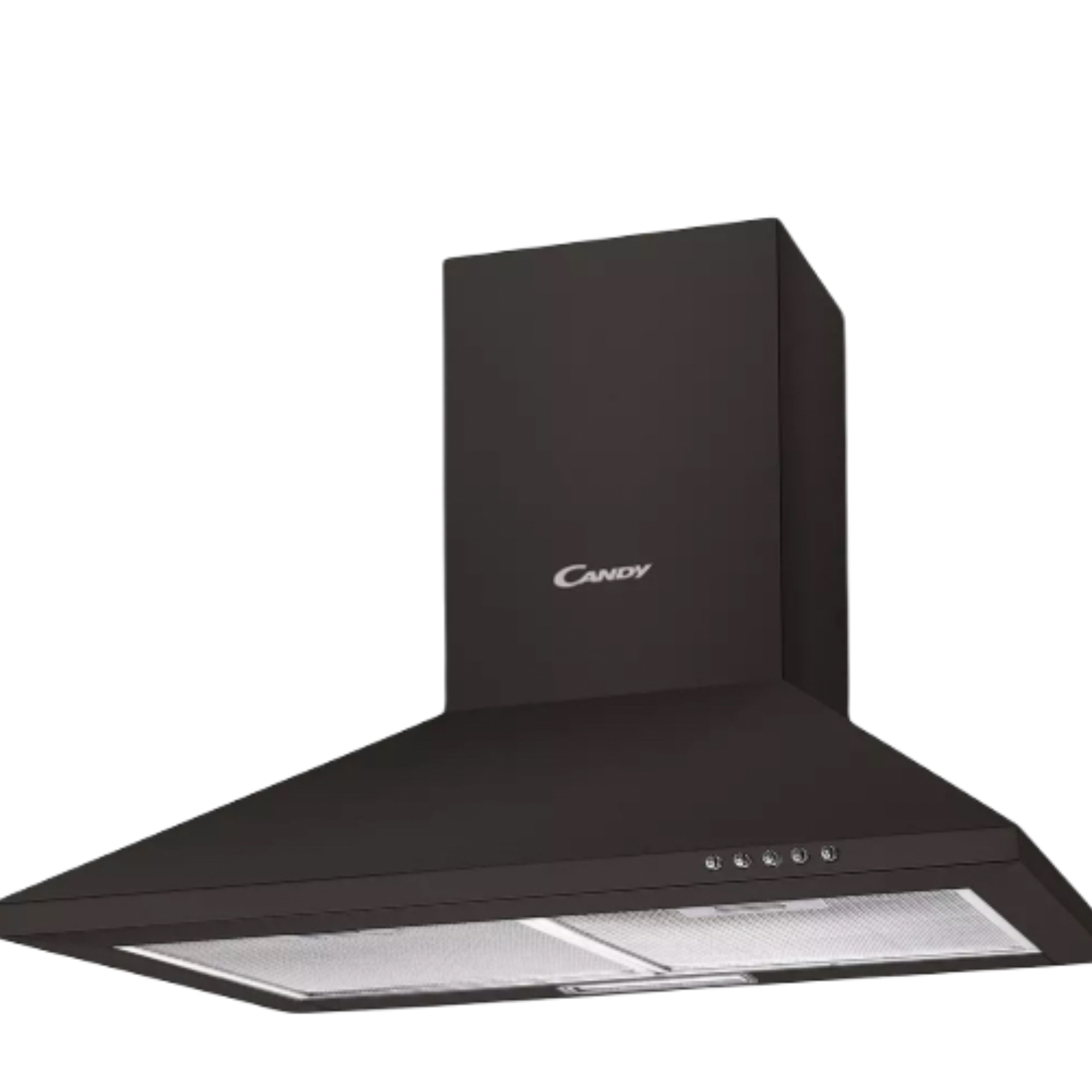Should I open windows when cooking in winter? Experts share the pros, cons and alternatives to try
We asked our experts whether it's better to have windows open when cooking, or not
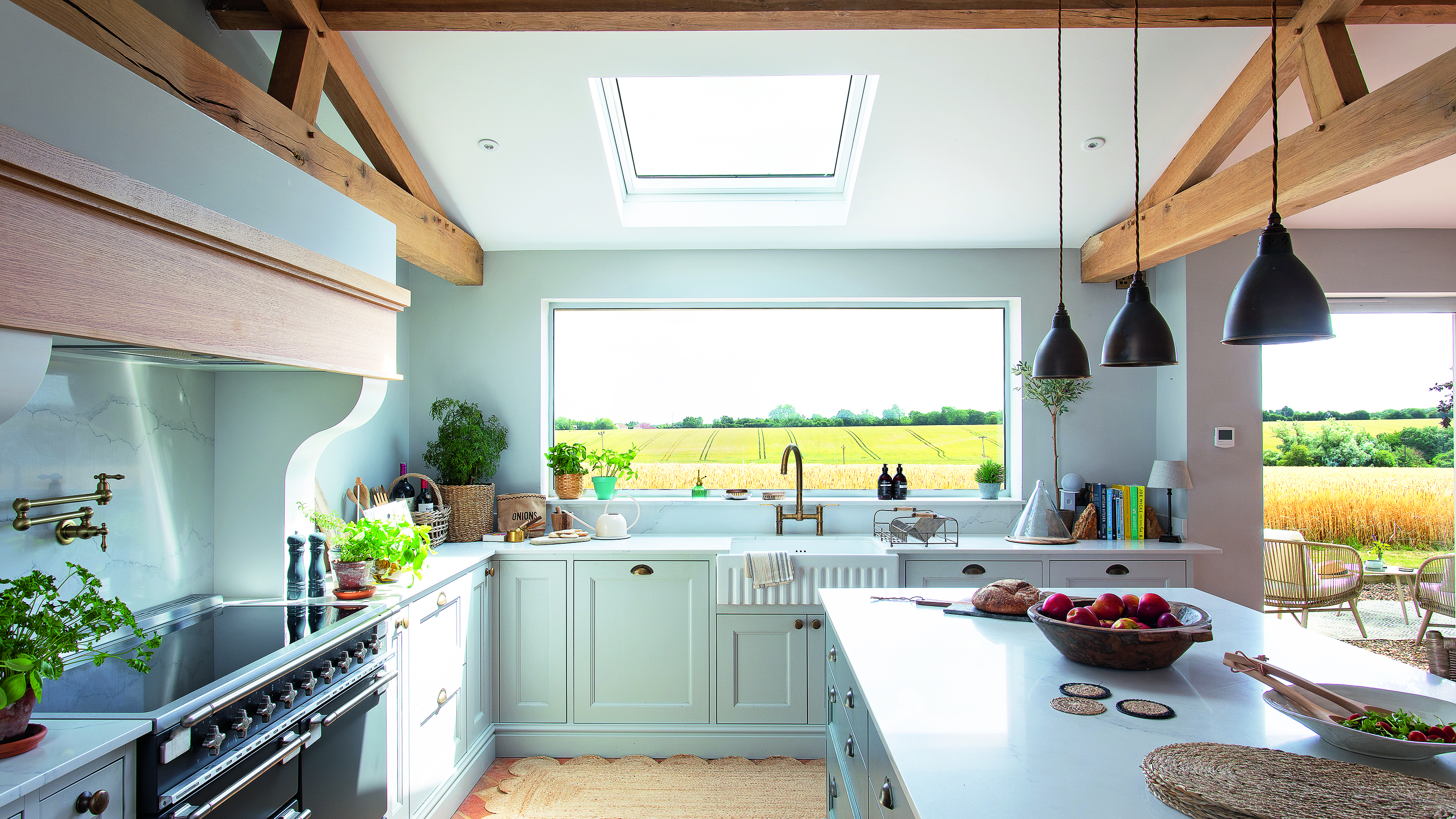

It's a question that often comes up – should we open our windows when cooking in winter? Or do we rely on our extractor hoods to do all the work?
We tend to be aware of pollution outside of our homes, but we don't always consider the air quality inside which can come from candles, cleaning products that aren't eco and cooking smells. There are some instances where we might automatically open our windows – when cooking with certain ingredients or frying something that's particularly smokey. But is it something we need to consider every day?
We've put this key question to our experts to see if we should, or shouldn't keep them open, and what the pros and cons are.
Should I keep windows open when cooking in winter?
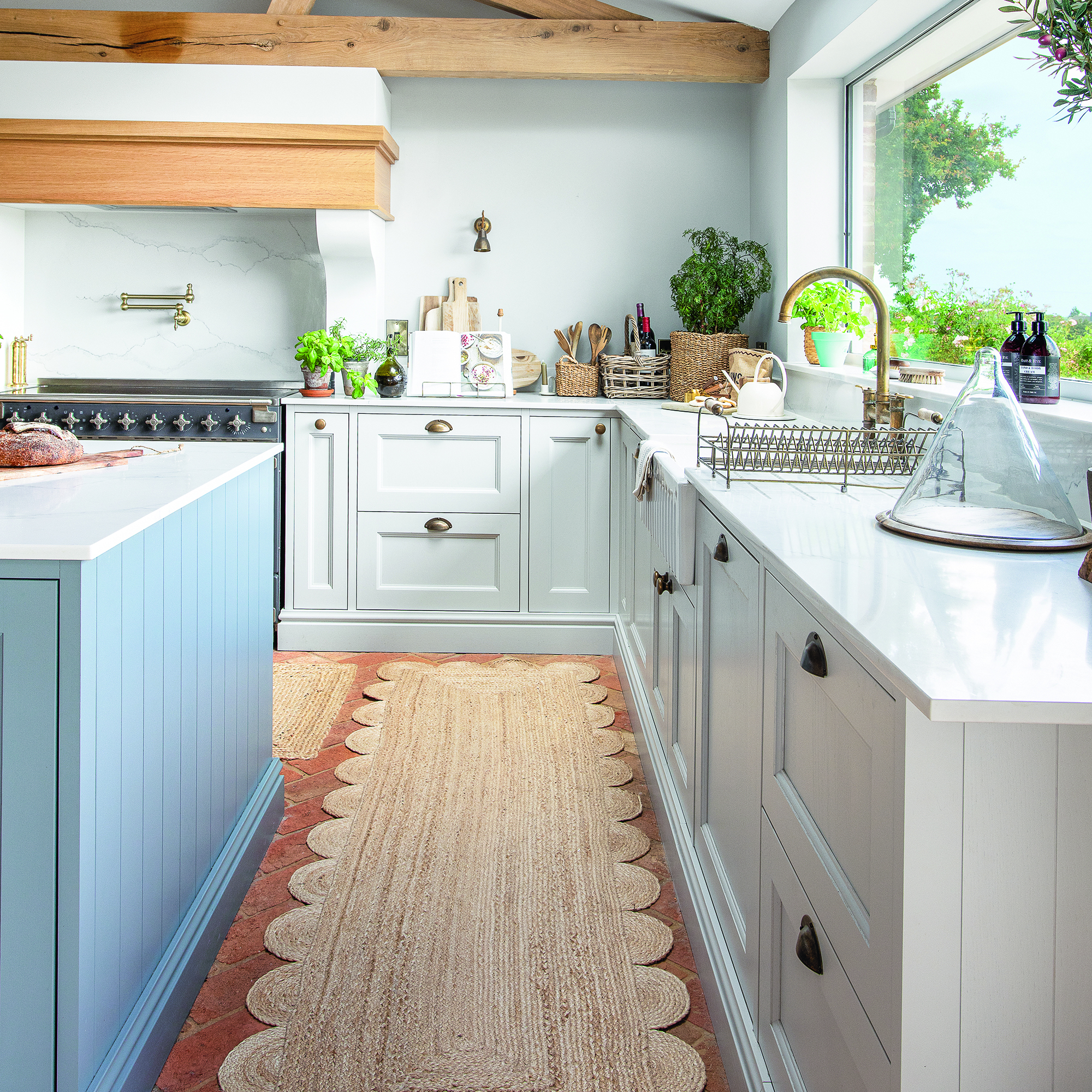
Molly Chandler, designer at Willis & Stone says yes, 'When cooking, it is generally recommended to open windows if possible, as this allows fresh air to enter and helps dissipate odours, steam and any smoke generated during the cooking process.'
It can depend on the time of year, in the summer months we are more likely to have windows open anyway, and possibly even the back door if it leads to the garden.
However, in the cooler months – from those chillier autumnal days through to winter it's something we don't tend to consider. Sarah Dempsey, cleaning expert at My Job Quote, working with Tombola explains, 'In the cold weather, doors and windows tend to be closed in your kitchen to keep the heat in. This increases the amount of moisture in the air and therefore increases the likelihood of mould build up in your space.' One quick fix we love if mould is an issue, are Amazon's ANSIO disposable dehumidifier condensation removers, they're great for kitchens.
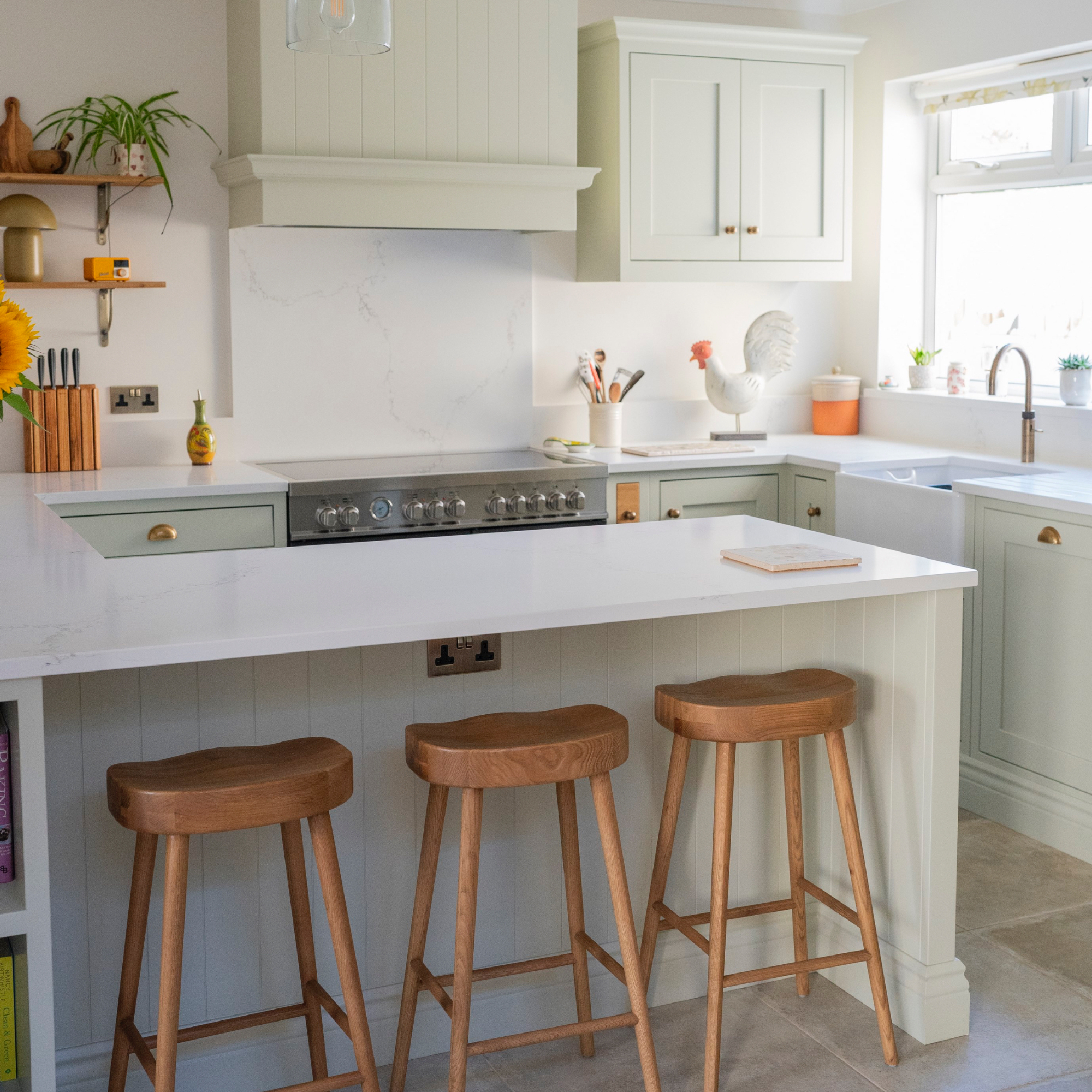
Molly agrees, 'Cooking in winter presents a unique challenge when it comes to ventilation. Keeping your windows open while cooking can help remove odours, steam and potential pollutants, ensuring good air quality in the kitchen. However, the downside is that cold air enters, making the space less comfortable and potentially increasing heating costs. This can also cause your home's heating system to work harder, especially if the kitchen door is open, allowing cold air to circulate further.'
Get the Ideal Home Newsletter
Sign up to our newsletter for style and decor inspiration, house makeovers, project advice and more.
There's no doubt about it, cooking with windows open in winter does aid ventilation, but it's about getting the balance right with the temperature in the kitchen.
What are the pros and cons of opening them while cooking?
As with most things, there are times when opening them is advantageous, whilst other times not. With the increasing wet weather we've had over recent years, mould has become an issue, this is compounded by leaving the windows closed when cooking.
Jen Nash, head of design at Magnet says cooking with windows open is a good idea, 'It helps to prevent condensation in your space. Cooking methods that generate steam like boiling or simmering, can lead to excess moisture. Opening the windows can help with the humidity levels.'
However there are some exceptions, Jen adds, 'There are some scenarios when it isn’t recommended. For example, when there is a strong breeze outside. This could interfere with your hob flame (for gas hobs) or spread food smells around your home instead of out. Additionally, open windows might invite insects, especially if there's food aroma wafting out.'
What are the alternatives to opening the windows while cooking?
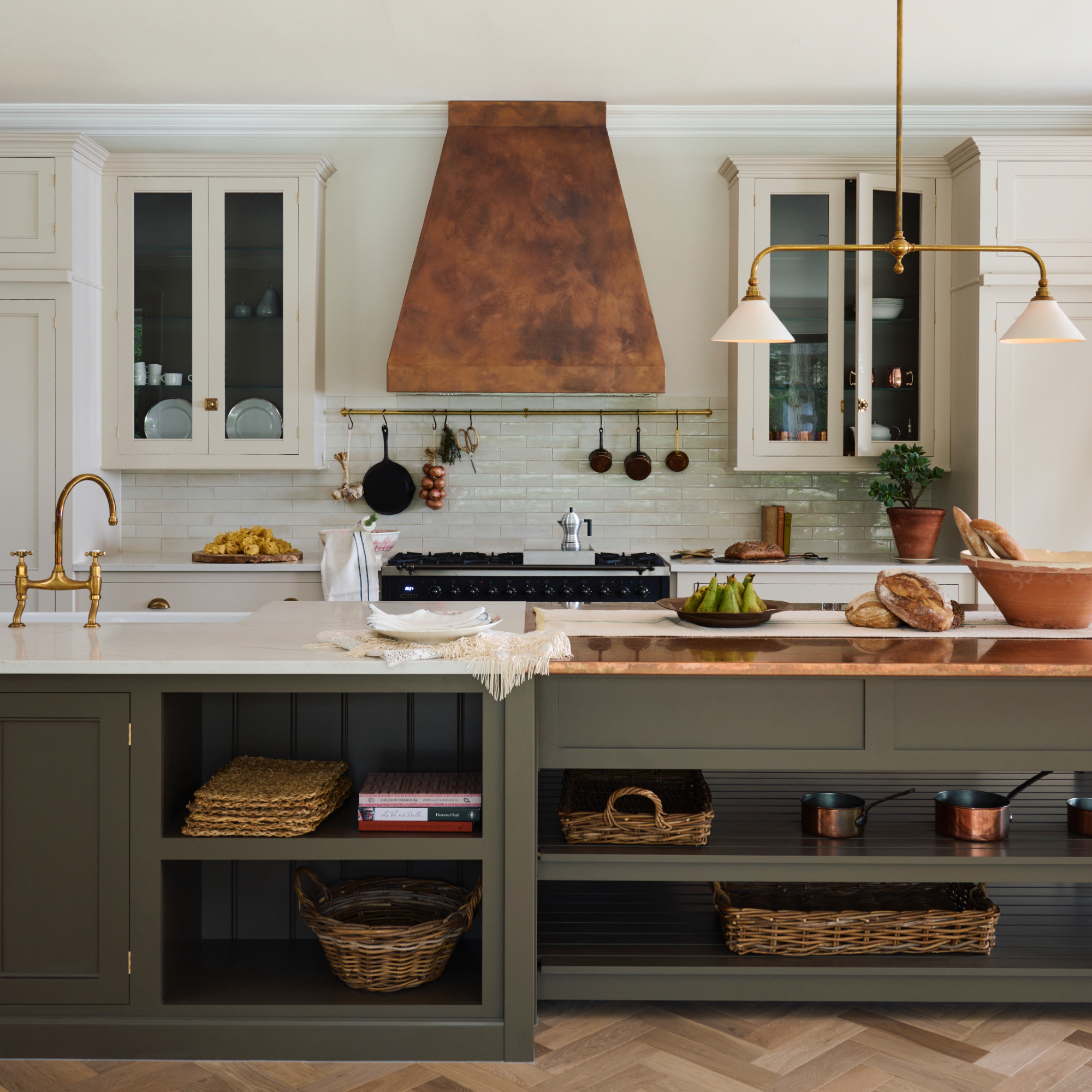
There are several options if you don't want to open your windows. Firstly, we look at the simple solutions that can be done immediately.
'Keep your heating on at a low level to raise the background temperature in your kitchen. Warm surfaces don’t allow water vapour to condense which reduces the possibility of mould growth,' advises Sarah Dempsey. 'An additional tip is to keep the lids on pots when cooking, as this will also help.'
For a longer term solution if damp does become an issue during winter then consider investing in a dehumidifier.
'Dehumidifiers can be a helpful secondary option, especially in kitchens prone to excess moisture. They are effective at reducing humidity levels but do not address odours or grease. A compact, portable dehumidifier can be placed in the kitchen, but it should not replace proper ventilation,' suggests Molly.
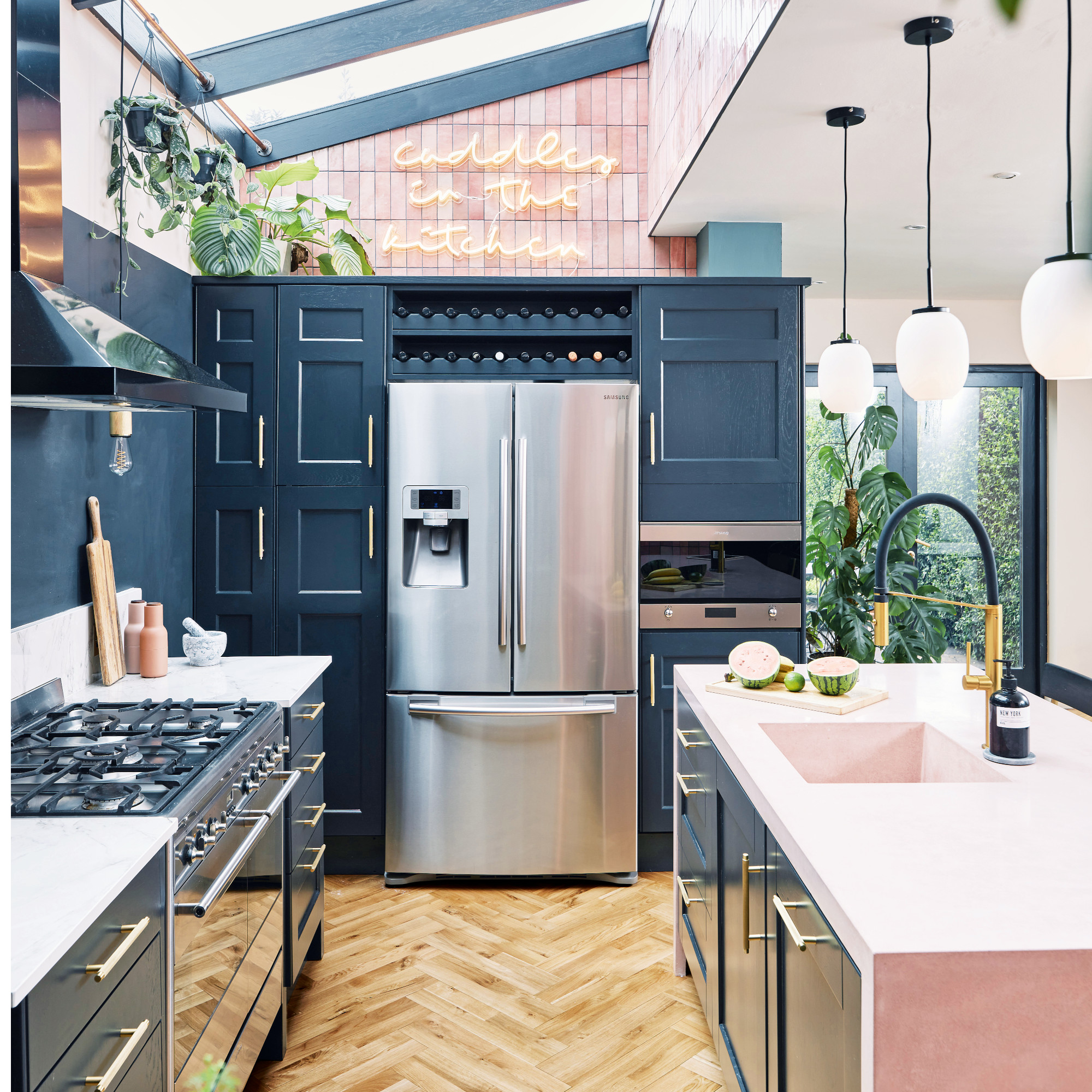
If you or a family member suffer from allergies then this is another great reason to keep the windows open. Air purifiers are a good strategy to consider too. Molly adds, 'They have activated carbon filters to neutralise odours and grease particles.'
Richard Davonport, managing director at Davonport Kitchens suggests investing in a proper and well-maintained extractor hood. 'It will be worth its weight in gold and help to take many of the cooking smells and smoke out of the kitchen. However, there may be times when a helping hand is required, and an opened window or door can be the answer as it lets in fresh air and stale air out. Doing so won’t interfere with the working of your extractor hood or make it any less effective, so there isn’t a reason why you shouldn’t!'
Below we've sourced our top three methods for extracting steam and odours if you don't want to open your windows, or, if you do have them open a little but want extra help.
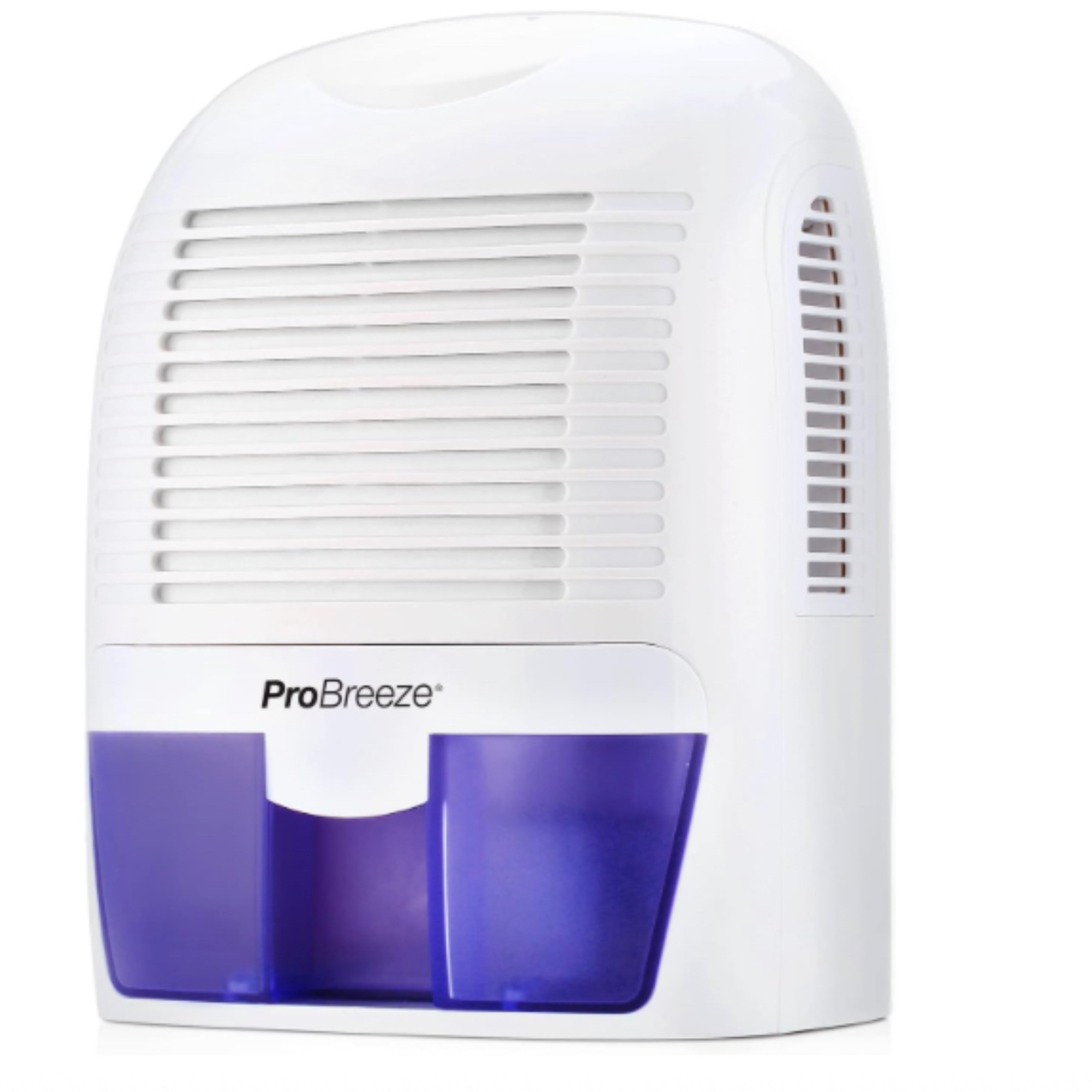
This portable dehumidifier is ideal for removing damp in your kitchen, it's small enough to be discreet too, and ideal for spaces up to 220 sq ft. It has an auto shut-off function for safety and holds 1500ml. The ultra-quiet operation means you'll barely hear it in use.
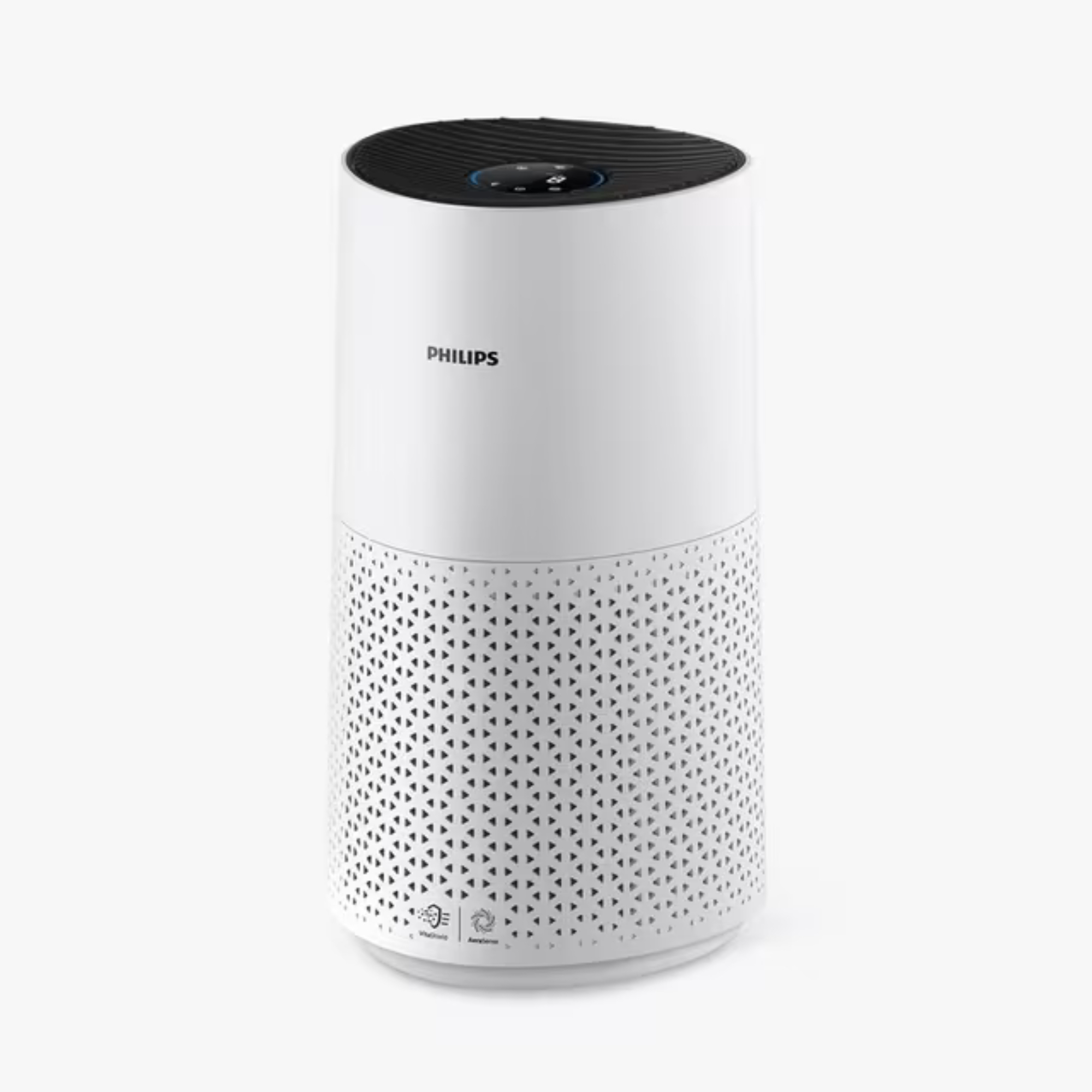
This great model has a 3-layer filtration with NanoProtect HEPA active carbon and pre-filters which ensures the air you'll be breathing in will be free from bacteria, pollen, dust and gasses. It also offers optimal filtration for up to 12 months. Easy to clean, you can vacuum the pre-filter – it will tell you when to do that via the app, and if the filter needs changing.
FAQs
Can you just use your kitchen extractor fan instead of opening the windows while cooking?
Depending on the size of your kitchen, an extractor fan would be up for the job. 'A high-quality kitchen extractor fan can often suffice, especially in well-ventilated kitchens,' says Molly. 'Extractor fans are designed to remove airborne particles, grease and moisture efficiently, but their effectiveness depends on their power and placement within the cooking area.'
The kitchen extractor you choose needs to work within the space, for example, if your kitchen is large, then make sure you pick a model that has the power to extract at a higher rate.
'You also don’t need to always open windows when you have appliances that help with ventilation. Magnet has an array of downdraft hobs (such as the AEG Extractor Hob) and extractor fans (such as the Miele Wall Extractor) which remove odours and keeps the kitchen fresh,' says Jen.
Should you keep doors closed while cooking?
This is kind of a personal choice and can depend on the size of your house, if you live in an apartment it might be best to keep the kitchen door closed. Molly explains, 'Keeping them closed can prevent cooking smells and grease from spreading to other parts of the house. However, if the kitchen lacks adequate ventilation and there is no open window or effective extractor, leaving doors ajar might help disperse excess heat and humidity to avoid buildup in the cooking space.'

Sophie has been an interior stylist and journalist for over 22 years and has worked for many of the main interior magazines during that time, both in-house and as a freelancer. On the side, as well as being the News Editor for indie magazine, 91, she trained to be a florist in 2019 and launched The Prettiest Posy where she curates beautiful flowers for modern weddings and events.
-
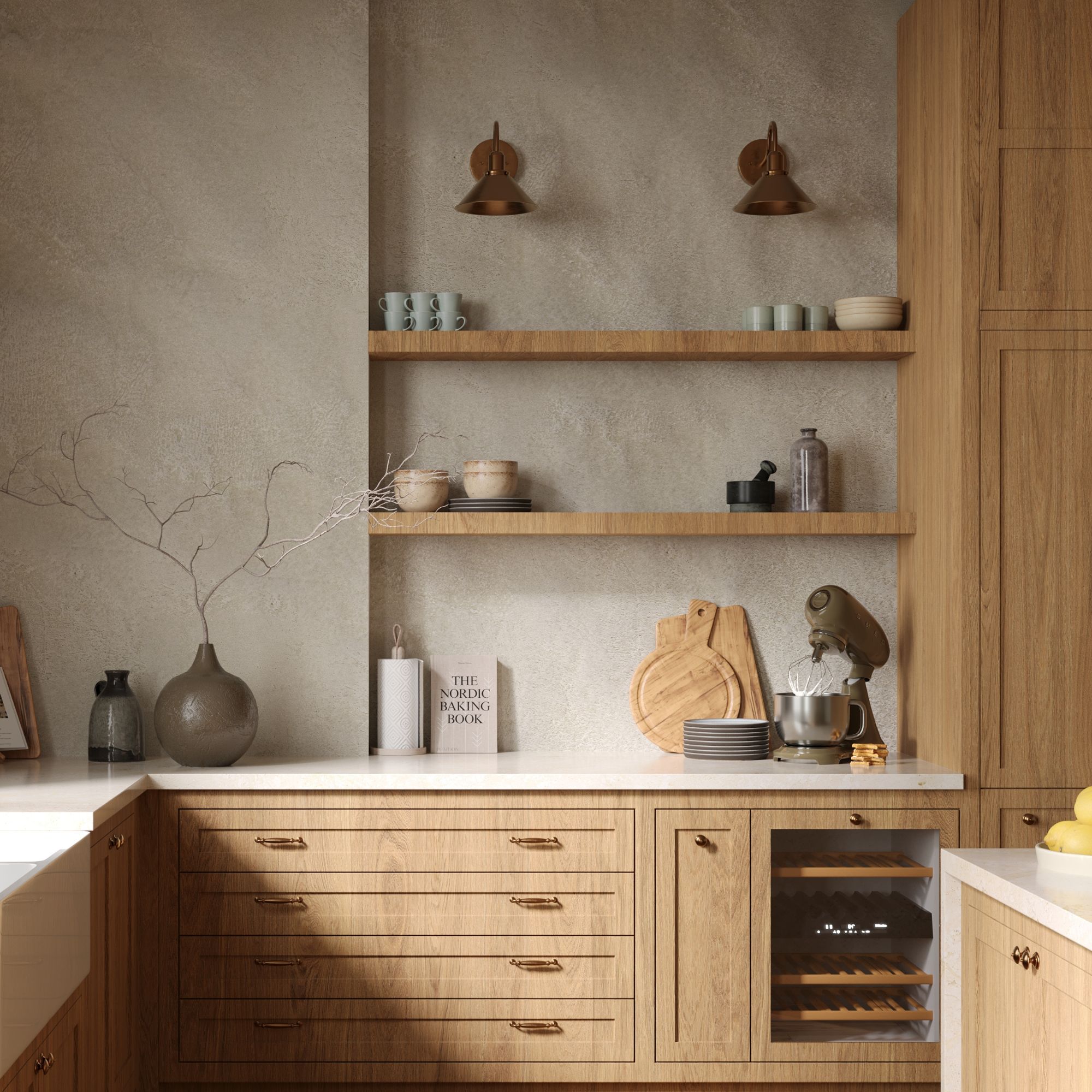 Wood drenching is the calming new twist on the colour drenching trend – here’s how to make the look work in your home
Wood drenching is the calming new twist on the colour drenching trend – here’s how to make the look work in your homeIt’s easier than ever to embrace natural materials
By Maddie Balcombe
-
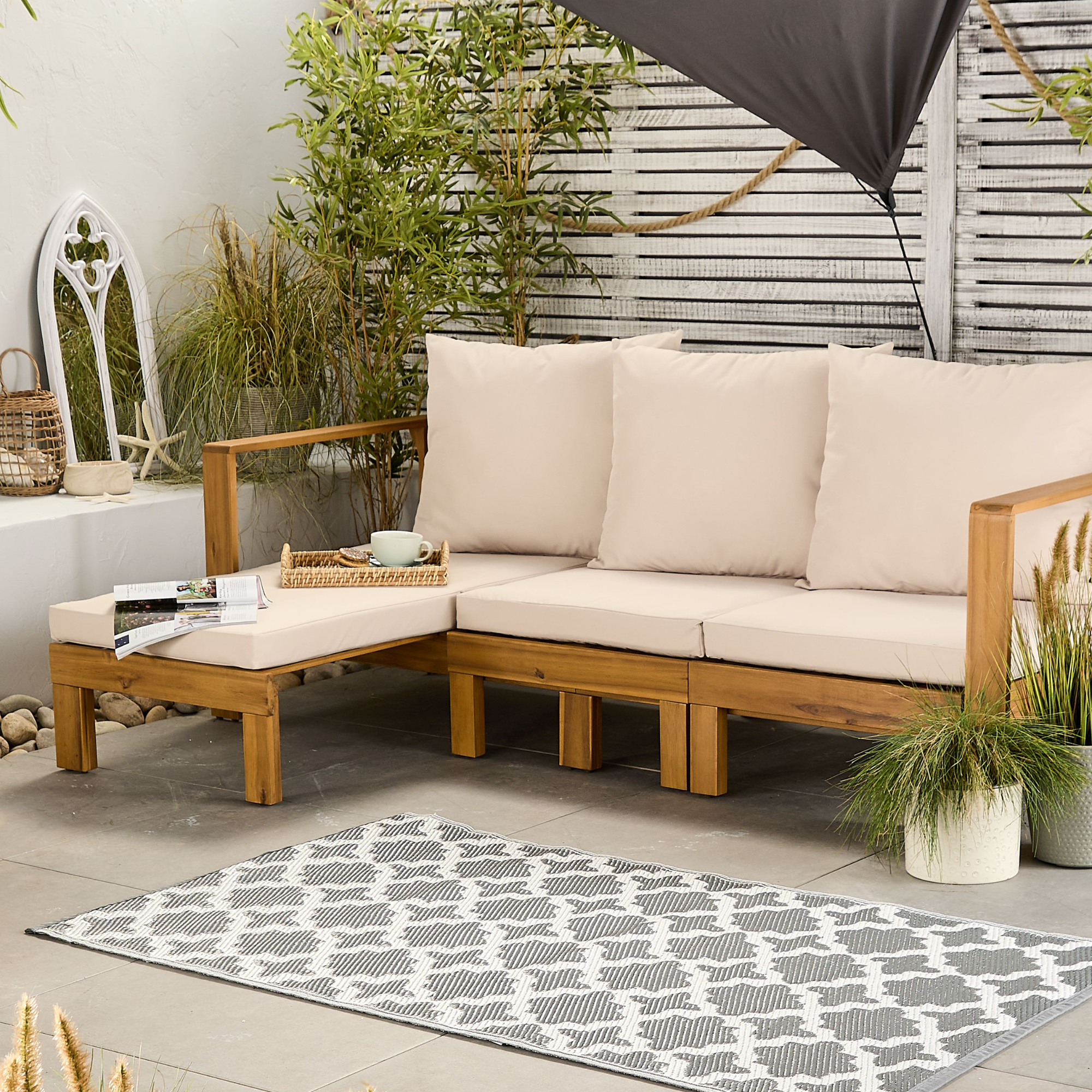 Aldi is launching a £200 day bed with four different features - its sleek design is suited to the whole family
Aldi is launching a £200 day bed with four different features - its sleek design is suited to the whole familyYou don't want to miss out on this Specialbuy
By Kezia Reynolds
-
 How to set up a drip watering system that saves water and a lot of effort
How to set up a drip watering system that saves water and a lot of effortKeep your plants hydrated (and your water bill down) with this clever garden watering solution
By Natalie Osborn
-
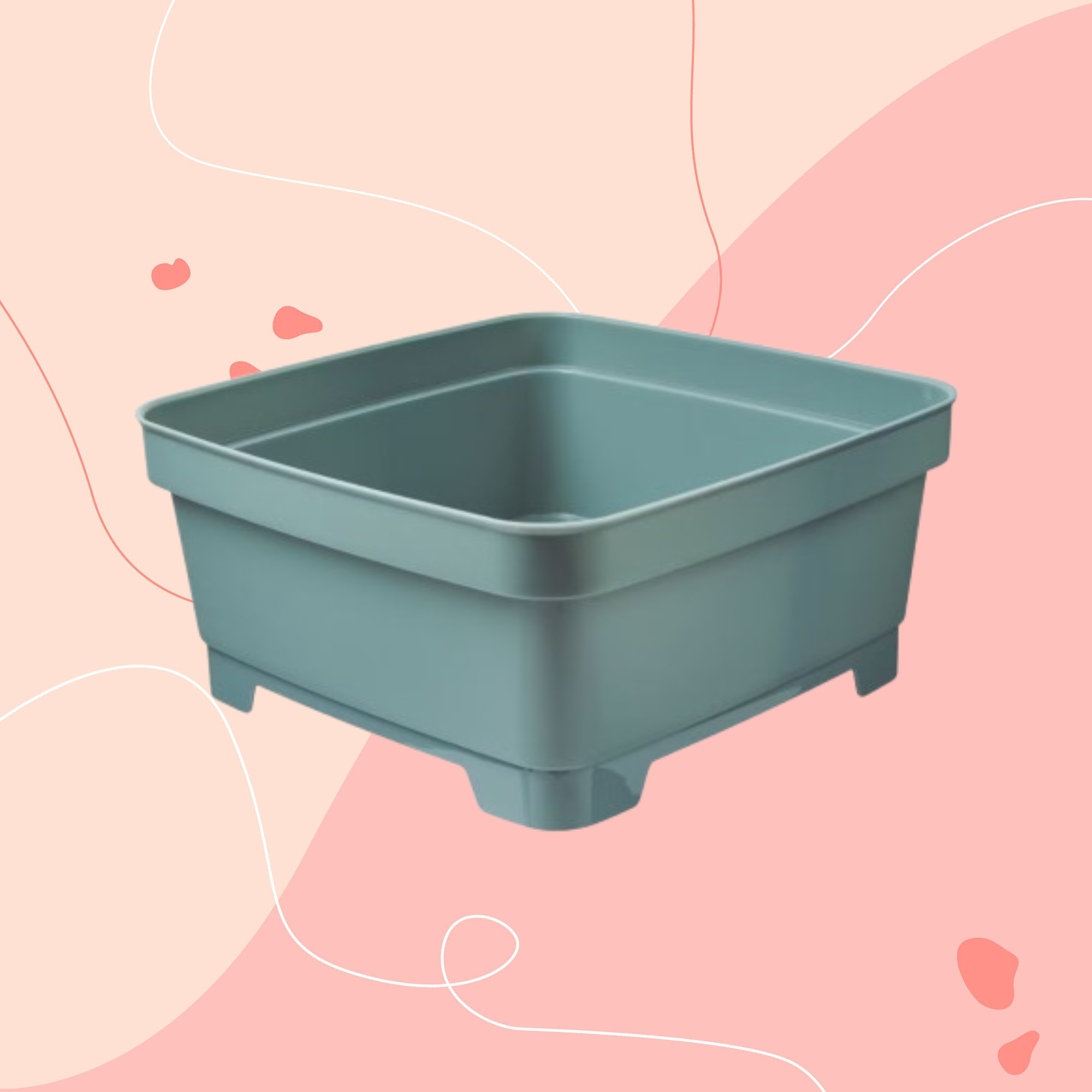 Aldi is releasing a budget alternative to the cult Joseph Joseph washing up bowl – it’s just £4.99
Aldi is releasing a budget alternative to the cult Joseph Joseph washing up bowl – it’s just £4.99The Joseph Joseph washing up bowl is an Ideal Home favourite - now we can't wait to try Aldi's alternative
By Kezia Reynolds
-
 I just bought my first home, and this £10 buy was the very first thing I bought for it to make it feel warmer and secure
I just bought my first home, and this £10 buy was the very first thing I bought for it to make it feel warmer and secureIf I did it all again, this would still be my very first buy
By Rebecca Knight
-
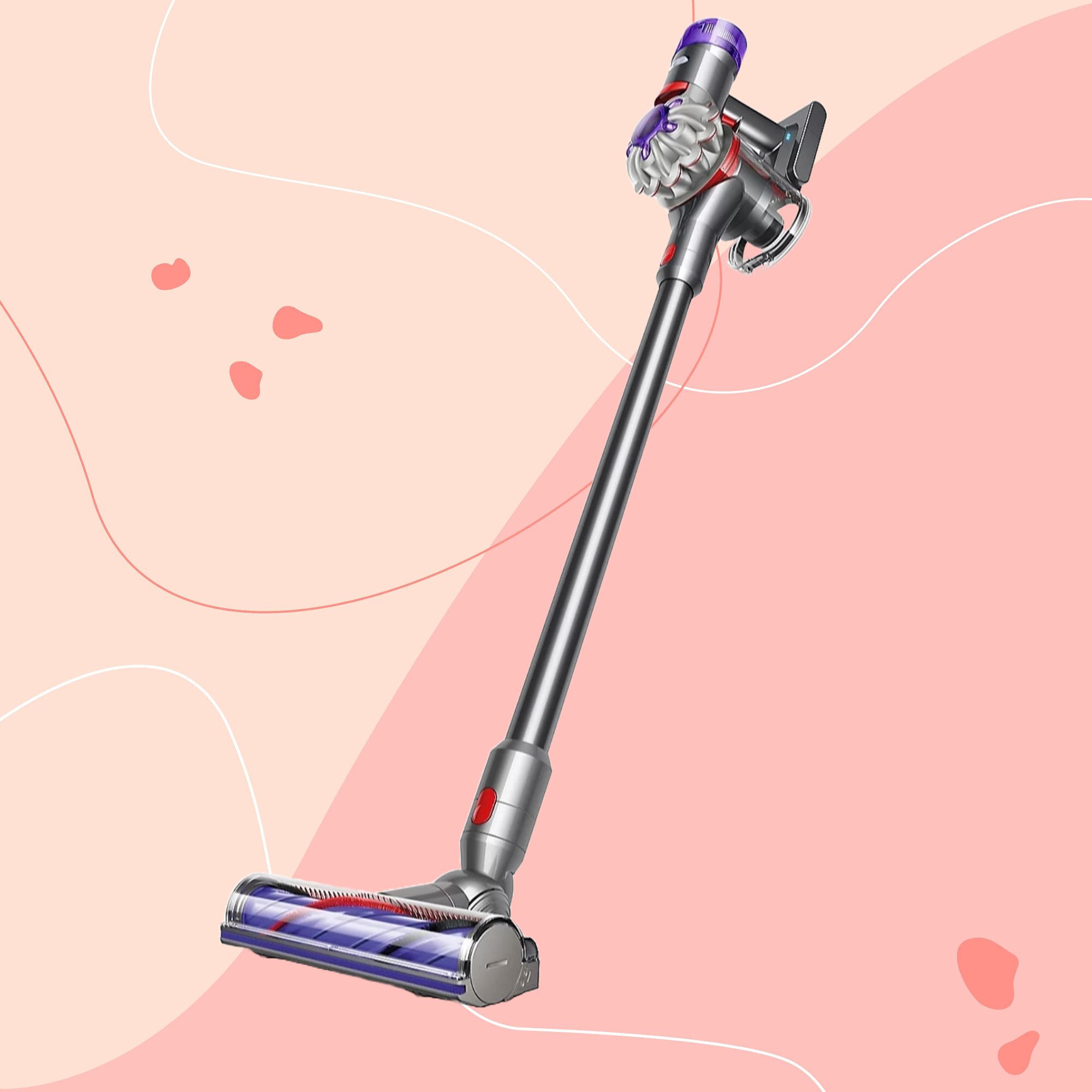 It’s normally impossible to find a Dyson vacuum for under £250 — but QVC has slashed the price of their bestselling models for a limited time
It’s normally impossible to find a Dyson vacuum for under £250 — but QVC has slashed the price of their bestselling models for a limited timeRun don’t walk to pick up the brand’s bestselling model for under £230 before it sells out
By Lauren Bradbury
-
 Catherine Zeta-Jones has revealed the cleaning product she swears by to keep her home fresh - and it’s just £8 on Amazon
Catherine Zeta-Jones has revealed the cleaning product she swears by to keep her home fresh - and it’s just £8 on Amazon'I use it on my counters. I use it on my walls. I use it on my doors. When I smell it, I know my house is clean.'
By Kezia Reynolds
-
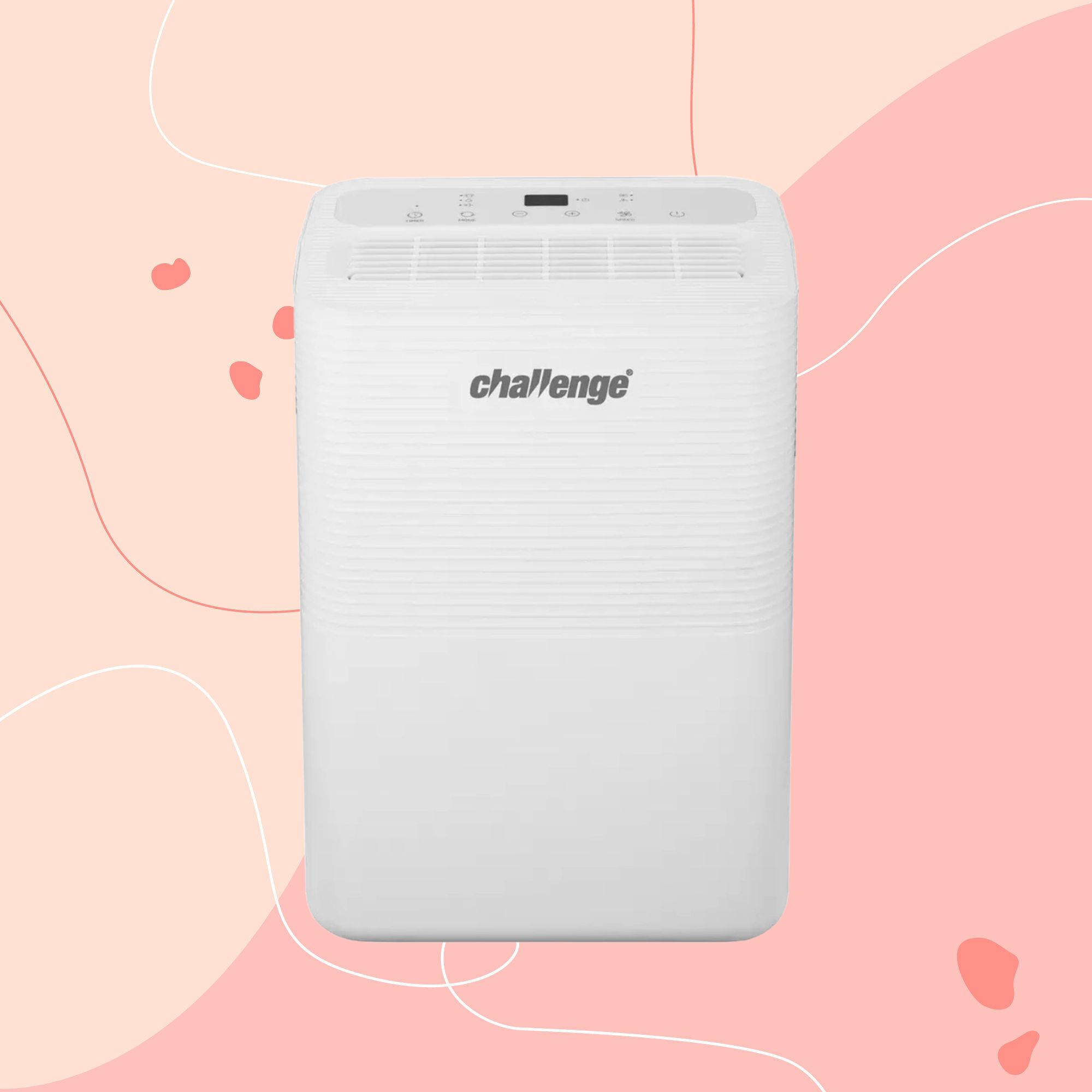 I tested the 12L Challenge dehumidifier in my damp Victorian home over winter — I haven’t spotted any signs of mould for the first time in five years
I tested the 12L Challenge dehumidifier in my damp Victorian home over winter — I haven’t spotted any signs of mould for the first time in five yearsThe Challenge 12L dehumidifier doesn’t have too many bells and whistles, but I can already see the difference it’s made to my damp home
By Lauren Bradbury
-
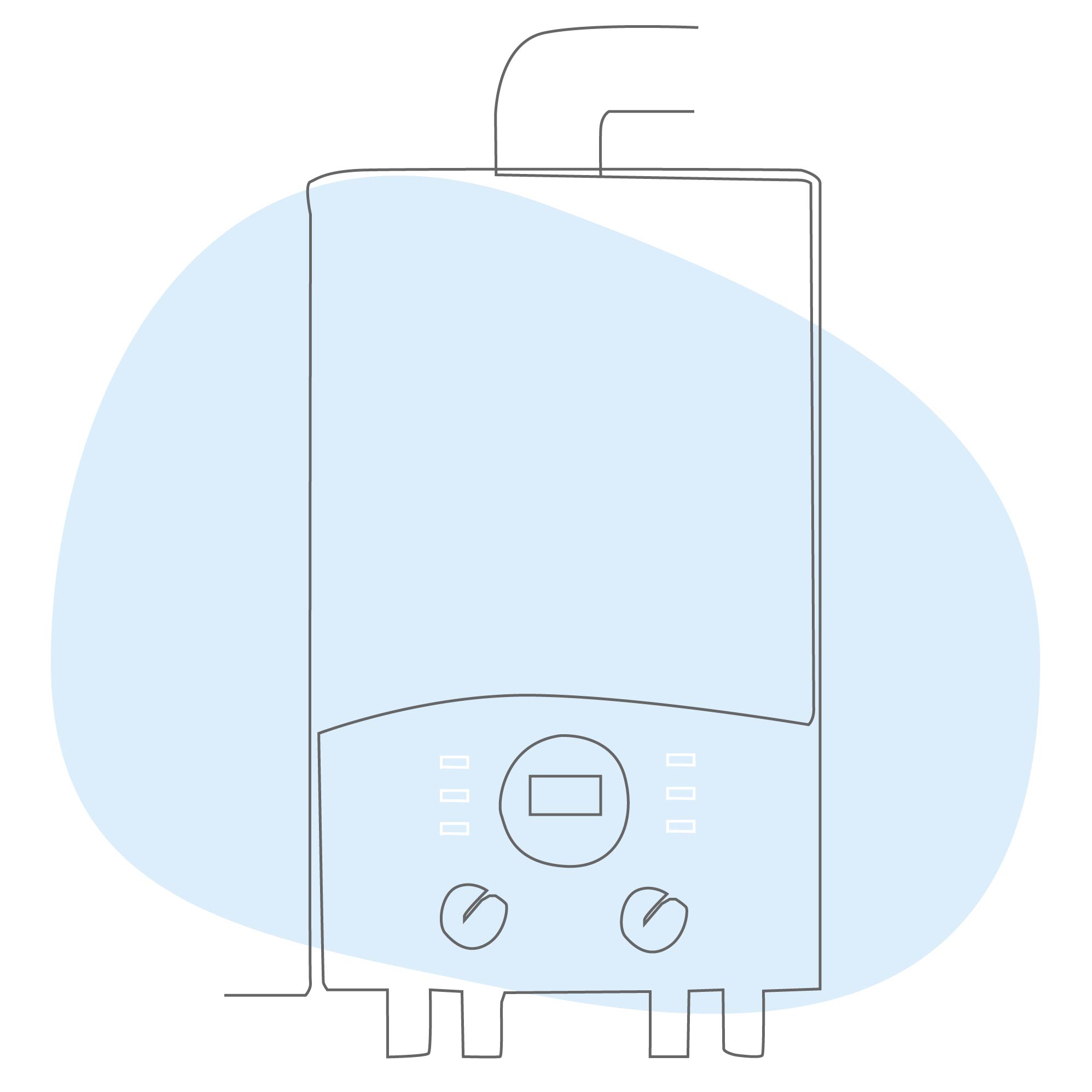 What is boiler flow temperature? Heating experts urge you to check yours now as you could be overpaying on your energy bills
What is boiler flow temperature? Heating experts urge you to check yours now as you could be overpaying on your energy billsTurning this little-known number down just a few degrees can result in some serious savings
By Lauren Bradbury
-
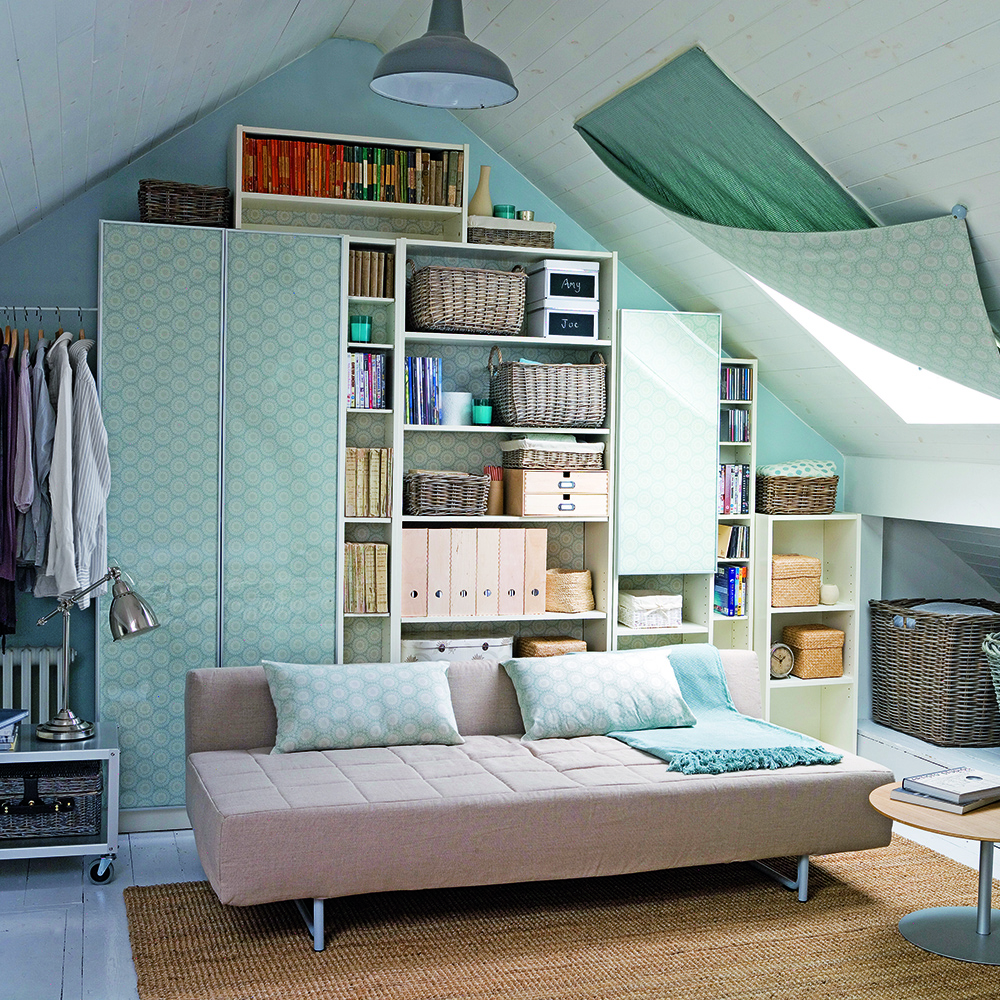 Stacey Solomon has shared 5 nifty wardrobe storage hacks to make getting ready in the morning easier — and they're genius
Stacey Solomon has shared 5 nifty wardrobe storage hacks to make getting ready in the morning easier — and they're geniusThese five wardrobe storage hacks are a gamechanger
By Katie Sims
-
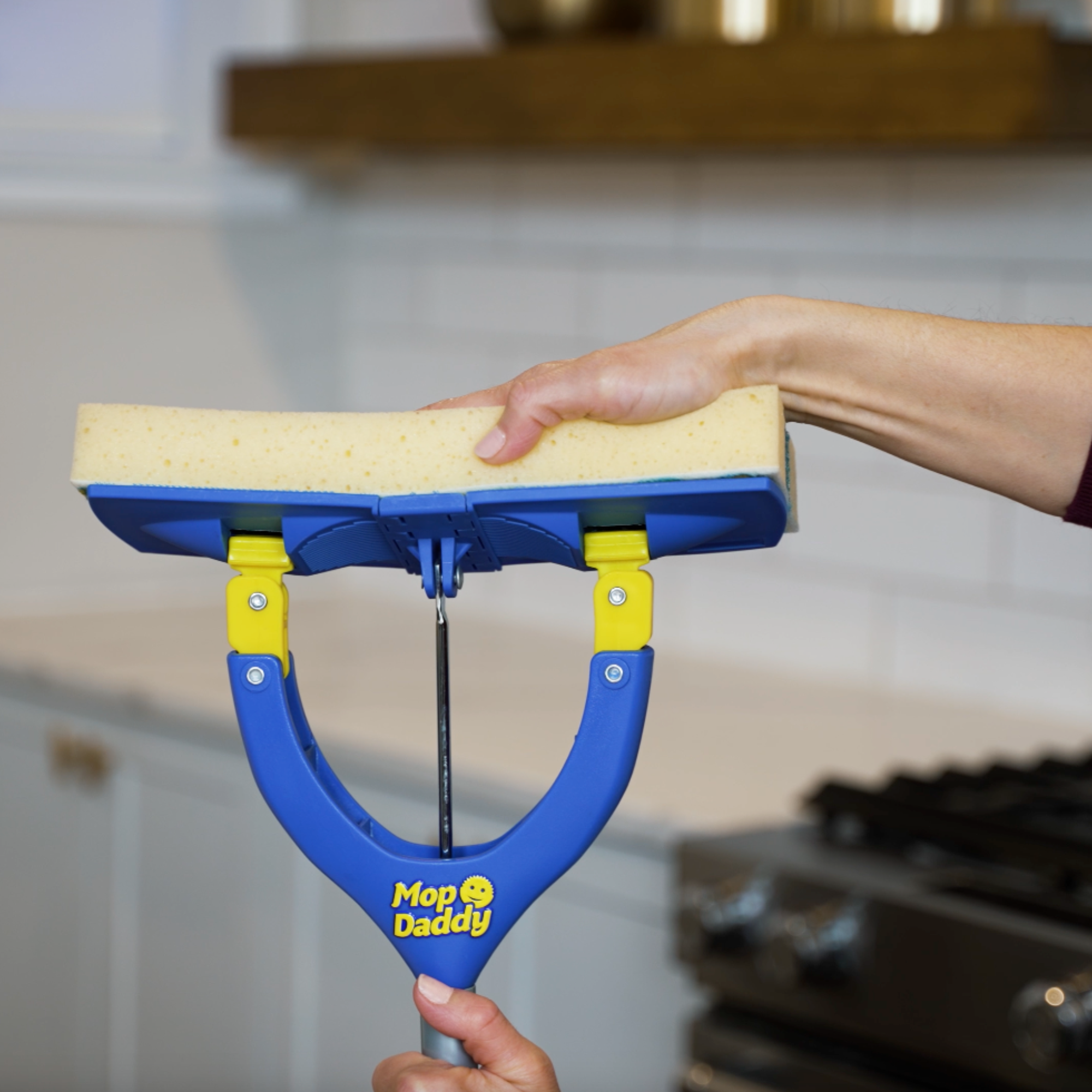 Cult cleaning brand Scrub Daddy has just launched a brand new butterfly mop — could it be the ultimate solution for banishing stubborn marks on your floor?
Cult cleaning brand Scrub Daddy has just launched a brand new butterfly mop — could it be the ultimate solution for banishing stubborn marks on your floor?We're obsessed with all things Scrub Daddy
By Kezia Reynolds
